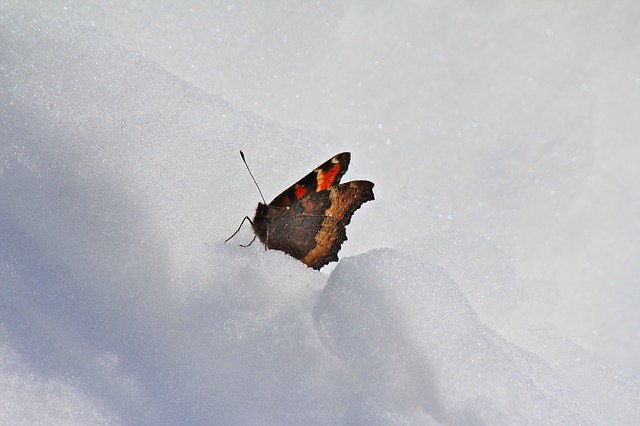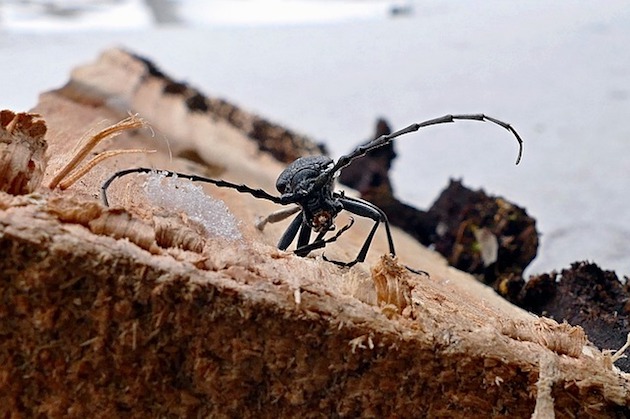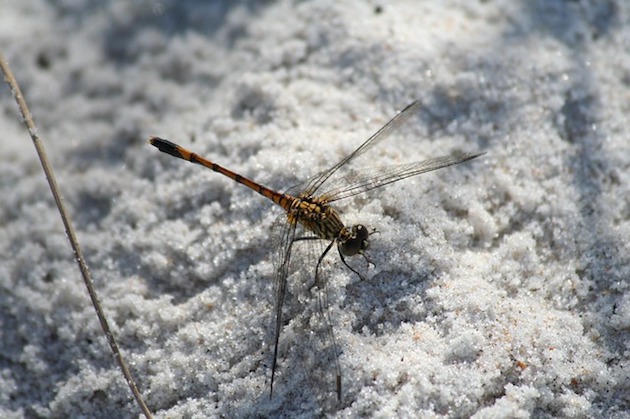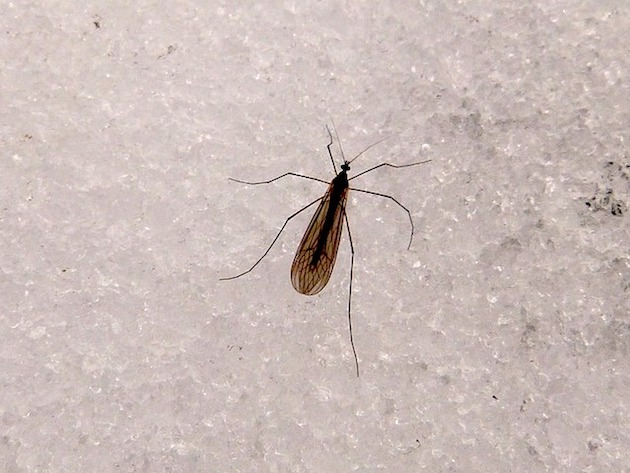Now that the temperature is dropping, have you been wondering: where do insects go in winter? You may notice that certain pests tend to disappear in the colder months. It’s like magic. Suddenly you don’t have to worry about wasp nest control or cockroach infestations.
But maybe you are curious about where do insects go in winter. What’s the catch here? It’s true that pests do tend to disappear during the winter months. But that doesn’t mean they can’t find a way to cause a nuisance. Here we are going to look at where do insects go in winter, and how do they survive and thrive despite the cold.
Where Do Insects Go In Winter Option One: Migration
Insects that live on seasonal plants and crops need to find somewhere warm to eat when winter comes. Where do insects go in winter when they migrate?

Flying insects like butterflies, moths and dragonflies may migrate in the winter, just like birds. The amazing thing about insect migration is that when insects move back in the spring, they are not the same ones that migrated in the winter.
Some Opt For Hibernation
So that’s some insect species taken care of. But where do insects go in winter if they don’t migrate? Bug hibernation happens, but it isn’t the same as mammal hibernation. When the daylight starts to become less and less, an insect has a trigger that makes them put on more weight and get rid of water from their body. They will also avoid food and materials like dust particles, as this could make ice crystals on or inside of them.

Once the insects have got themselves ready for the winter, they will seek out a dry, covered shelter to spend the winter. These shelters often end up being in our homes. Where do insects go in winter? In our chimneys, nooks in the roofing, our lofts – all of these are places that an insect will use to hibernate in.
During their hibernation, an insect’s metabolic rate drops to one-tenth of its usual activity. This allows a bug to enter a sort of suspended sleep, letting them simply wait out the winter in suspended animation until spring. Wasps, bees and butterflies all use different kinds of hibernation or suspended sleep to make it through the colder months.
Seasonal Reproductive Cycle
One of the most common ways UK insects survive the coldest months is to time out their growth stages. This makes sure they have the natural cover when they need it. Silkworms are a great example of this. They time their natural reproduction and growth cycles. When it starts to get cold, they’re in their teenage years, the right age to transform into their pupae forms. These forms are equipped to survive and grow throughout the winter.

You have to admit, this is pretty ingenious. Insects that can’t survive the cold winter temperatures create cocoons that will shelter them. Or they will enter the grub stage where they burrow under the ground before the frost comes. Some insects even go so far as to construct their own shelters out of twigs, leaves and other natural debris. They then cling to it tightly to maintain body heat.
There are always some insects that won’t survive the winter at all, such as moths. Instead they reproduce at a time so that their eggs will survive through the winter at a non-feeding growth stage. This is why we see so many moth control problems in the spring, as the unnoticed eggs hatch from the winter.
They Infest Our Homes In Winter
You probably saw this one coming (we are a pest control company after all). A lot of insects get desperate to find a place to spend the winter. So they love nothing more than to move into your home with you. They’re not the best roommates to have though. Generally they will be messy, disgusting and will never pay you any rent.

Insects in winter will enter your home and promptly fall asleep. Then they will remain there, inactive, until the first warm day of spring comes. At this point they will come out full force in your home. That’s not good.
Once an insect has entered your home, they tend to seek out secluded areas. These areas are normally dark, humid and have easy access to food and water. Places you should keep a close eye on are lofts, pantries and closets.
Even if you do have a pest infestation in the dead of winter, Empire are still here with 24/7 winter pest control. Come snow or frost, we offer emergency pest control to stop you becoming prone to winter pests.
If you ever need a pest control inspection or just advice on how to prevent winter pests from infesting your home, get in touch with us today. Our team are here on hand to help you with any pest control problems.






